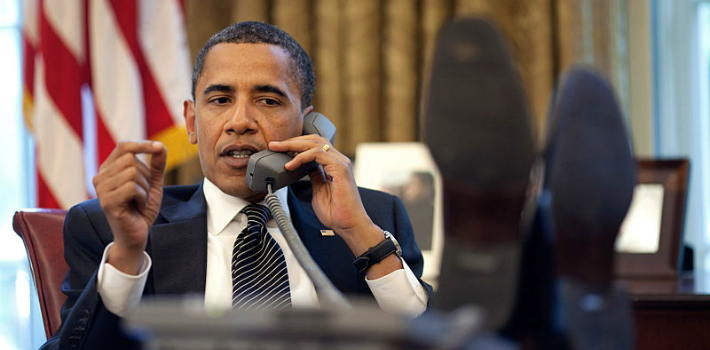
EspañolEverything had to be thought of for us poor, unfortunate, incompetent Cubans. US academia conceived our national destiny — up to the very last detail — beginning in the early 1990s, a quarter of a century ago. While this proposition should have been left in the past for archeologists to discover, it has now become a future fossil of our nation in disarray.
Indeed, “Cuba” as a topic is pondered upon with greater clarity from a distance, within Georgetown University, for example, rather than at the University of Havana. In 1993, a scholar from Georgetown, the intellectual heart of Washington, DC, drew the sketch of Cuba’s transition from Marxist totalitarianism to state capitalism. This was a direct flight from dictatorship to dictocracy, without a single layover in democracy. Poor unruly Cubans, we would not know what to do with freedom!
You can still see this for yourselves on Amazon; the title is Cuba in Transition, Options for U.S. Policy by Gillian Gunn, who was the director of the Caribbean Project at Georgetown University at the time. She was later accused by Chris Simmons of having been a spy for the Castro regime, which she denied, calling the idea “preposterous.”
In any case, Uncle Sam’s logic couldn’t be more discriminatory: why have yet another third-world subdemocracy in the US hyper-imperial democracy’s backyard? To find more corruption in Latin American administrations and even more violence among Continental Caribbeans? To add yet another failed constitutional state to the love-hate relationship? Weren’t Cubans already acquiescently accustomed to decades of tyrannical discipline?
Ever since the yankee military invasion in 1898, it is evident that we poor Cubans — with our pseudo-republics and local super-revolutions — don’t deserve much more from the United States. Yes, “todos somos Americanos” (we are all Americans), as Barack Obama stated in his elementary-level Spanish at the White House in December. However, “some of us are more American than others,” as George Orwell would have probably said if he had heard this statement himself.
[adrotate group=”8″]
The truth of the matter is that what would be found intolerable by any given US citizen all of a sudden should be tolerated by 12 million Cubans on the island and the other 3 million living in exile around the globe: Castroism must be the criterion for truth; the revolution is an infallible source of the right to perpetuity of power; our sovereignty does not depend on the participation by the people but rather the participation of a corporate-military elite.
And this is the extremely dangerous message being sent from Washington, DC, to the rest of the hemisphere: pecking order is pragmatically imposed above any historic injustice and immoral system. Rights are the private property of those who remain in power (this is why in the Cuban constitution the Communist Party’s monopoly in politics is still enshrined with impunity).
The migratory apartheid, imposed on one fourth of the Cuban people who cannot reside permanently in their own country, is a factor which ensures regional stability. And much worse: Cuban cadavers lack international prestige. Which is why the UN officials are unconcerned about the children assassinated in the Florida straits on order from Havana. It’s also why the mortal attempt on Oswaldo Payá‘s life in July of 2012 did not cause a break in the secret diplomatic pact among Cuba, the United States, and the European Union: because far beyond ideological labels, power always supports power.
And this is also an extremely dangerous message for Washington, DC, since it retains its antipodes as allies. The US democracy is guilt-ridden and cowers from promoting democratization. They are abandoning victims to fend for themselves, and instead hugging their aggressor.
Cuba shouldn’t be the exception to this unethical equation — especially when the destiny of the Cuban post-revolution was conceived ahead of time from within the academia of Washington, DC.
In a similar vein, Glenn Alexander Crowther published his monograph “Security Requirements for Post-Transition Cuba” in 2007; in this case he wrote about the US solution for the Castro clan’s militarism. And here too — as with many other model analyses focusing on “Made-in-the-USA Cubanology” — everything looks so crisp, so balanced, so rational, so politically flawless.… As if they were not dealing with a mafia in Cuba, who will resort to mass murder to perpetuate power: willing to sacrifice their own people, as became frighteningly clear during the Cuban Missile Crisis in 1962.
President Barack Obama’s final months in office may be more or less decisive for my country, Cuba. However, Cuban dictator Raúl Castro’s final months in office will paradoxically mean nothing. His deceitful promise to leave all posts in 2018 does not change the fundamentally offensive nature of Castroism at all.
We are no longer facing a “fraudulent change,” like the martyr Oswaldo Payá denounced during his life, but an “unalterable fraud.” And it doesn’t seem to bother the nations of the free world in the least bit, the Unites States included.
Therefore, it is up to us — the few Cubans who remain free — to ask ourselves if it might not be precisely the opposite: that what’s most important to the nations of the free world (the United States included) is to conserve Cuba’s status quo, in keeping with the shameless phrase “better the Castro you know, than other criminals you don’t.”
 Versión Español
Versión Español












